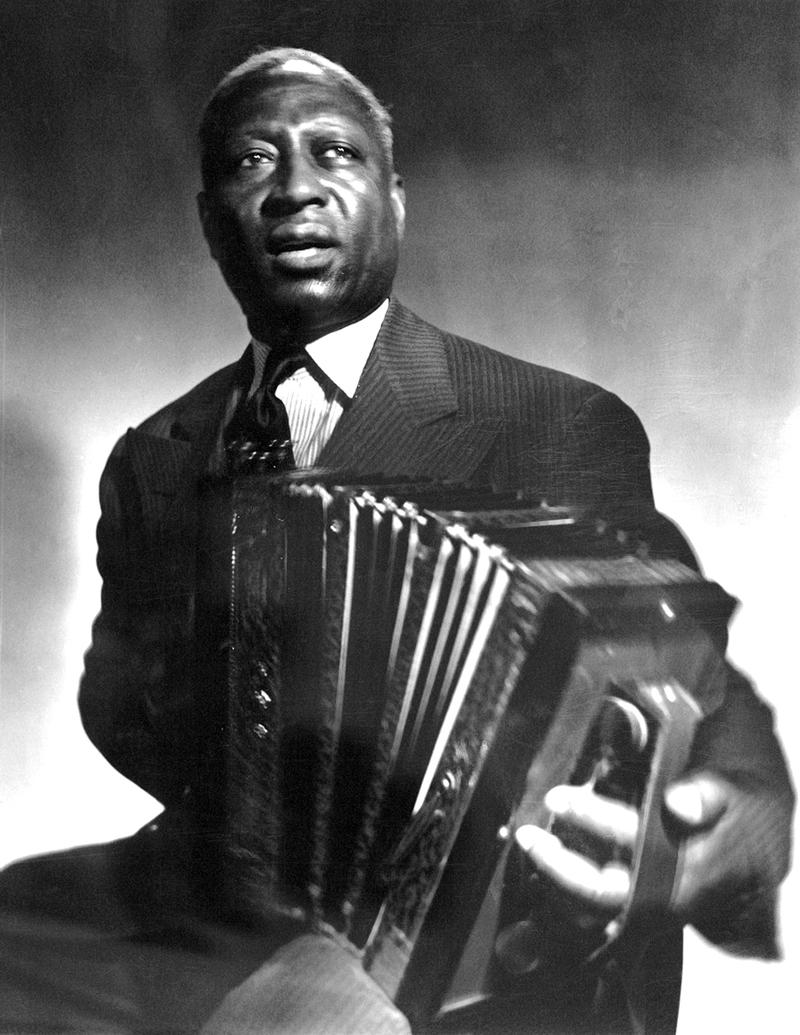10th annual WNYC music festival

A mixed bag is the best way to describe this 1949 recording of WNYC's Tenth Annual Music Festival. Ostensibly featuring jazz, the program also includes healthy doses of blues, ragtime, and the just plain odd. First up is jazz clarinetist Tony Parenti. Although a fine player of Dixieland and swing, here he is presented as an exemplar of ragtime, playing Joplin's Maple Leaf Rag as well as Blues in Ragtime and High Society. He is followed by the blues in the person of Huddie Ledbetter.
"Leadbelly," still in strong voice despite his death only a few months later from amyotrophic lateral sclerosis, belts out Good Morning Blues and several other songs. Sadly, his guitar is barely audible. The French-born jazz critic Charles Delaunay is brought in to introduce pianist Joe Sullivan, who is asked about "the Chicago sound." In what becomes a recurring and amusing motif, Sullivan mumbles that he would rather play than talk, launching into Honeysuckle Rose and then his most famous original composition, the all-too-prophetically-entitled Gin Mill Blues.
Wellman Brodie and Gus Aiken come on next. They also seem reluctant to talk about their time in Chicago, instead teaming up with vocalist Ann Lewis who sings Fish Out of Water and Jailhouse Blues. There is then a weirdly extended segment with John "Knocky" Carter, a marginal musical figure but at the time a Professor of English at Columbia University. The interviewer tries to tie in Carter's love of jazz with his thesis on the Elizabethan pamphleteer and dramatist Robert Greene! When that fails he quizzes him about his work on the Edwardian satirist H. H. Munro (Saki.) "Knocky" deflects these questions, claiming to be "a jazz musician at heart," and plays rather tame versions of The Grace and Beauty Rag and Kansas City Stomp.
Ruby Smith is an odd figure in the history of blues. She was Bessie Smith's niece by marriage and actually became, before the term existed, an "impersonator," once pretending to be her famous aunt onstage and channeling the distinctive Bessie Smith sound in recordings. Here, she continues what is almost a novelty act, singing Nobody Knows You When You're Down and Out and Backwater Blues in the style of Bessie, before frankly admitting that she'd, "Like to do 'Ruby,' now." She then sings a much more swinging tune, Hit That Jive, Jack.
Next up is Johnny Windhurst, a much-admired but rarely recorded cornet player. Windhurst had a great reputation in the jazz world but seems not to have relished the musician's life, preferring to live with his mother in Poughkeepsie, only touring occasionally. He died at the age of fifty-four. He also refuses to say much, letting his horn do the talking in Somebody Loves Me and I May Be Wrong.
By now we seem to be squarely in the mainstream of 1949 jazz, but then out of left field comes Brownie McGhee, the blues singer and guitarist inextricably linked with harmonica genius Sonny Terry. He also brushes aside the interviewer's questions, leading all the musicians who have stuck around in a rendition of The Boogie Blues. As the music fades, the announcer tells listeners we will "take a jump from swing to serious" as a program of "American choral music" follows. In fact, we have been listening to the very music this era will be remembered by.
Huddie Ledbetter (1888-1949) had a storied two-part career, spending the first part of his life as an itinerant musician, farm laborer, and sometimes-convict. Discovered by Alan Lomax and brought East, he then became the darling of the left, performing in clubs as well as political rallies and union meetings. His influence on the subsequent folk music revival cannot be overestimated. As the website for the Rock & Roll Hall of Fame (to which he was inducted in 1988) notes:
His keening, high-pitched vocals and powerful, percussive guitar playing commanded attention, and he became known as “the King of the Twelve-String Guitar.” … Ironically, the Weavers sold 2 million copies of their recording of Lead Belly’s “Goodnight, Irene” shortly after his death. “It’s one more case of black music being made famous by white people,” Pete Seeger, one of the Weavers, said in 1988…. “It’s a pure tragedy he didn’t live another six months, because all his dreams as a performer would have come true.”
Brownie McGhee (1915-1996) was a multi-faceted performer. Although chiefly remembered for his partnership with Sonny Terry (the two toured for forty-five years but during the last fifteen did not speak), his more lasting contributions may have been in the field of rhythm and blues. The website allmusic.com points out:
Together, McGhee and Terry worked for decades in an acoustic folk-blues bag, singing ancient ditties like "John Henry" and "Pick a Bale of Cotton" for appreciative audiences worldwide. But McGhee was capable of a great deal more. Throughout the immediate postwar era, he cut electric blues and R&B on the New York scene, even enjoying a huge R&B hit in 1948 with "My Fault"…McGhee didn't limit his talents to concert settings. He appeared on Broadway for three years in a production of playwright Tennessee Williams' Cat on a Hot Tin Roof in 1955, and later put in a stint in the Langston Hughes play Simply Heaven. Films (Angel Heart, Buck and the Preacher) and an episode of the TV sitcom Family Ties also benefited from his dignified presence.
Audio courtesy of the NYC Municipal Archives WNYC Collection.
WNYC archives id: 72582, 150187
Municipal archives id: LT3177, LT5361
